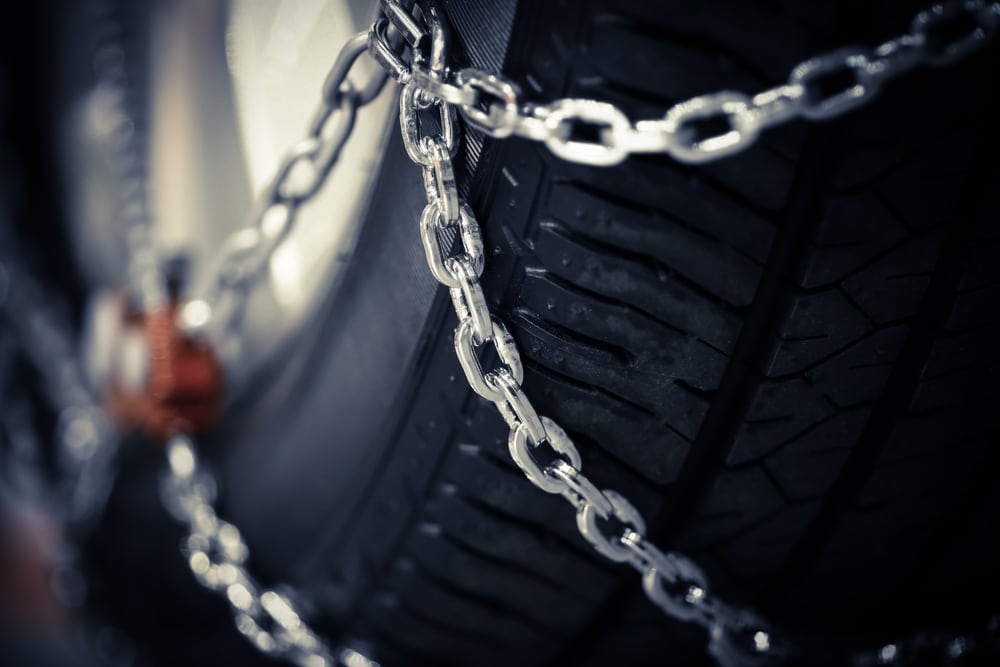

If you live in an area where snowfall is a possibility, then you need to be prepared for winter driving conditions. That means having a set of tire chains in your trunk in case the snow becomes deep enough to make driving dangerous.
When choosing tire chains, it’s important to consider a number of different factors, including size, whether your car is rated for chains or cables, the class of chains your car can use, and more.
The following are some useful tips regarding snow chains:
Automaker’s specifications: All automakers specify the class of tire chains that can be used on their vehicles. You’ll find this information in your owner’s manual. Never use a type of tire chain that’s not specified by your manufacturer, or it could damage your wheels, suspension, brakes or other components.
Class: Look for tire chains that are rated as SAE Class S. These are sized for today’s front-wheel drive cars and lower ground clearances. Other classes are designed for vehicles with higher ground clearances and may damage your car.
Sized to fit Your tires: There’s no such thing as a one-size-fits-all approach to tire chains. You need to ensure that they’re right for your tire size. If you’re not sure what size tires your car has, you can find this information on the tire sidewall, or on the driver side door placard. It will look something like this: P265/70R16.
Chains or cables: Many cars on the road today are not designed to work with chains at all. They’re designed to work with cables, which install very differently (and are not interchangeable with chains). Check your owner’s manual to see if you should use chains or cables.
Speed rating: All tire chains have a maximum speed rating. Make sure you know what it is and stick to it (or below). Note that a higher speed rating doesn’t necessarily make a type of tire chain better.
Tire chains are a necessity for drivers where snow accumulations are a fact of life.



